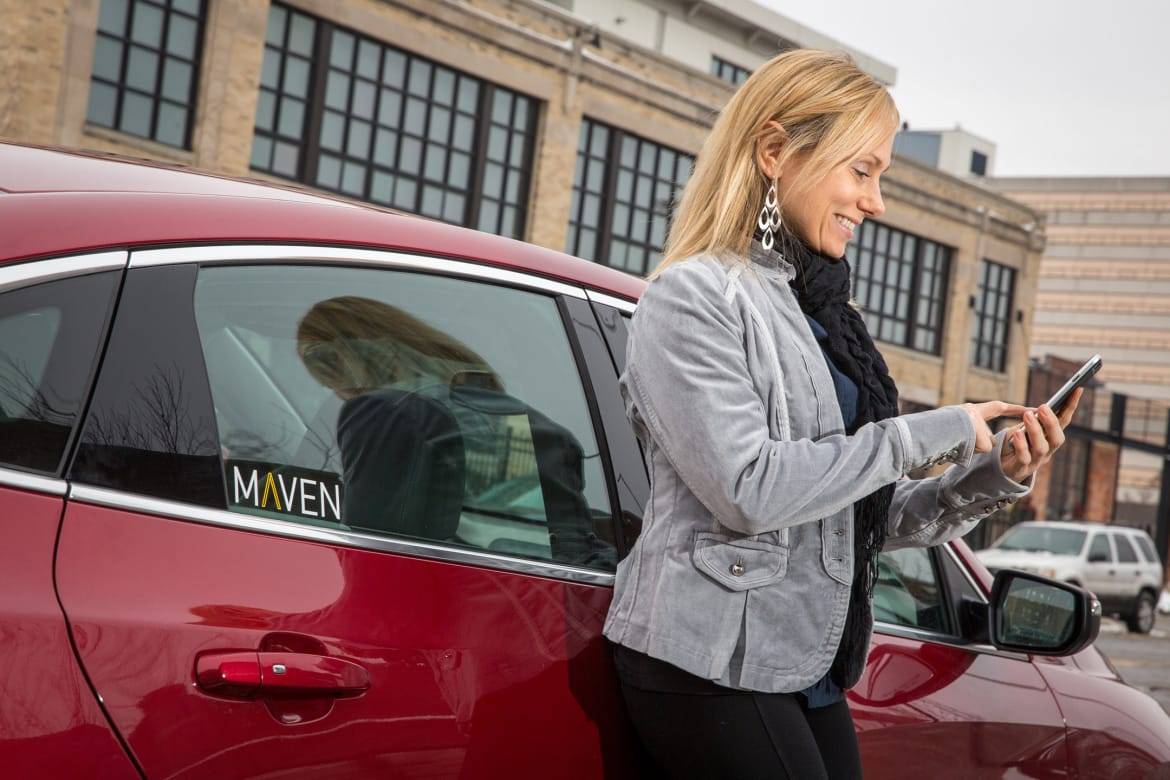Uber, Lyft, Maven and Zipcar Offer Election-Day Rides to Polls

CARS.COM — Yes, it’s true, Nov. 8 has arrived and Election Day is finally here!
To make getting to your polling location easier — and a little cheaper — this Election Day, car-share and ride-hailing companies such as Uber, Zipcar, Lyft and Maven are offering discounted rides to help you get out and vote.
Related: Heading to Canada? Drive One of These
Working in conjunction with Google, Uber’s Election Day app upgrade includes a function to help you find your nearest polling station. New Uber users can also enter a promotional code, VOTETODAY, to receive $20 off their first ride.
To mark the election of our 45th president, Lyft is offering a limited number of 45 percent discounted rides in select metro areas. The discount is capped at $10 and, once you’ve voted, any return ride is full price. New Lyft users will be offered a promo code — NOVEMBER8TH — for $5 off their first 10 rides in case the 45 percent Election Day promotion runs dry.
Maven, the ride-sharing company owned by GM, is offering $5 off every ride today. Using the promo code VOTE, the deal is valid for any reservations made between now and Nov. 14. Sorry, you can’t drive across the country’s borders in case your preferred candidate loses today.
Zipcar is going one better, thanks to its #DriveTheVote campaign that offers free rides to existing customers in select markets. Approximately 7,000 vehicles in Zipcar’s fleet will be free of charge for Election Day — taxes and other fees still apply, and these free rides will only be offered between 6 and 10 p.m.
That’s past the allotted voting times in some states, so don’t delay your vote simply because you want to cash in on a car-share promotion.
Why should I care? Car-sharing and ride-hailing companies are helping to get out the vote. These discounts are big news, especially to young voters on tight budgets. Each company has taken a slightly different tactic, from discounted rides to (nearly) free ones. Remember to read the fine print, however, and be sure to search for special promotions where you live. Deals vary from city to city.
Tesla Starts Charging for Superchargers
The days of free electricity are over, at least for any future Tesla owners who take delivery of their car after April 1, 2017. The Silicon Valley-based automaker has announced that charges will start being applied to users of the company’s Supercharger network of quick-charge stations. Fees will not be levied on existing Tesla owners.
Future Tesla owners who take delivery after that cut-off date will be given 400 kilowatt hours of recharge credits — good for approximately 1,000 miles of driving range. In its press release, Tesla Motors stated the upcoming Supercharger fees will “cost less than the price of filling up a comparable gas car,” and that the “Supercharger Network will never be a profit center” for the company.
Why should I care? This upcoming Supercharger fee isn’t shocking news — pardon the shameless pun. Tesla has poured millions of dollars into creating and maintaining a network of quick-charge stations around the country. To keep up with demand, especially with the impending arrival of the $35,000 Model 3 electric sedan in late 2017, the company must invest even more cash into its growing Supercharger network.
Yes, Tesla’s comment about fees being less than filling up a conventional car with gasoline is vague, at best. Prices will also vary from region to region, per Tesla’s statement. With more than 300,000 Model 3 sedans on pre-order, Tesla realizes it must keep these cars whirring along by rapidly expanding the electric network needed to keep them fully juiced.
Uber and GM’s Maven Cooperate for Car-Sharing
During this fractious campaign season, it’s nice to know that ride-hailing and car-sharing companies can come together and cooperate. Uber is teaming with Maven, GM’s car-sharing service, in a 90-day pilot program in San Francisco. Uber drivers will be able to rent GM vehicles in Maven’s fleet for $179 per week, excluding taxes and fees.
While the agreement is limited in scale — and might seem downright strange, considering GM’s investment of $500 million in Uber’s main rival, Lyft — the program shows the flexibility that exists in the growing car-sharing and ride-hailing market.
Why should I care? Cooperation is key to figuring out the car-share market. GM has invested a ton of money into Lyft, so this partnership with rival Uber seems a conflict of interest. But with this business model still very much on training wheels, you’re likely to see even more cross-pollination as car companies and car-share firms come together to expand their client base.
Featured stories




